- Opinion
- 15 Aug 23

Laura Klepeisz and Kate Brayden talk to three rising names in the local political sphere about the importance of representation on a regional and national scale, diversity and inclusion policies in schools and workplaces – and celebrating differences as strengths.
Uruemu Adejinmi
Longford, Fianna Fáil
Uruemu Adejinmi’s political journey started in 2016 after she supported a local candidate during the general election. When her neighbour asked her to join Fianna Fáil, she did and soon became engaged in the party’s activity.
In 2021, Cllr Uruemu Adejinmi made history. In a series of firsts, she was elected Mayor of Longford County Council as simultaneously the first migrant, African and black female to become Mayor in Ireland.
Now, she appeals to others to represent their own communities.
Advertisement
“Democracy is all about making sure we make decisions that are equitable,” Adejinmi explains. “If people are not present, then their issues and concerns cannot be articulated satisfactorily to have sustainable solutions that will stand the test of time.”
Originally from Nigeria, Adejinmi celebrates 20 years in Ireland in 2023. With a background in finance, business, and project management, she never saw herself moving into politics, but her politician father instilled certain values in her at a young age.
“I had an insight into politics and the importance of performing your civic duty,” she recalls. “Watching my father in his activities made me aware of government, leadership and management of public affairs.”
Naturally, her father is immensely proud of her achievements.
“It was a very special moment for him when I became Cathaoirleach. To this day, he doesn’t address me as my first name. He calls me, ‘Mayor’,” she laughs.
The councillor points out the need for representation as the key reason why people should run in their local elections. Only so can we “ensure that all voices are heard, and that policies, legislation, and directives take the impact on all people into account,” she stresses.
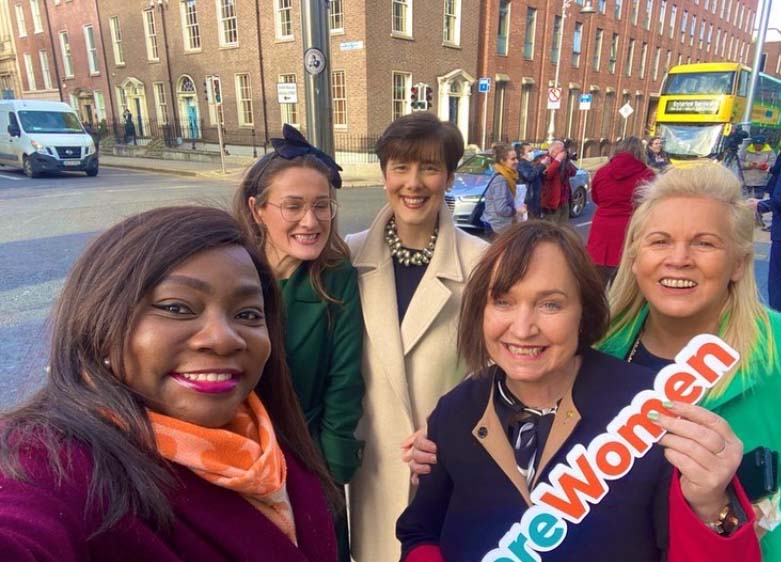
Advertisement
The growing discontent in Ireland can at least in part be attributed to people having issues that haven’t been addressed over time. In fact, according to Adejinmi, there is “nowhere near enough” diversity in the Irish political arena.
“There are different categories of difference in society,” she says, “if you think about migrants, people with additional needs, families, LGBTQ+ communities. Government is where decisions come from and what drives the actions of society. So, if the leadership is not correct, it affects everything else.”
As gender remains the most significant difference in society, Adejinmi campaigns for a gender quota of 40% representation of both male and female in local elections. She champions the needs of both women and men to achieve a balanced society. “The remaining 20% then can go either male or female, or whoever doesn’t want to have a gender assignment,” she adds.
It is also crucial to acknowledge the improvements that have been made so that they can act as an encouragement to continue along those lines. And it is local politics where the biggest gains can be achieved.
“All politics is local,” Adejinmi points out. “If you look at the progression of politicians, most of them started as local councillors, and when they are elevated, they know exactly what matters to the people in their constituencies. So, you must get the local representation right.”
The councillor recommends joining a party to kickstart your political career.
“That way, you get an opportunity to interact with people in the local communities who have been working in the grassroots,” she explains.
Advertisement
“You can get information from them, you go to meetings, you learn about local politics, and you learn who’s who in the local community.
Once you’ve learnt the ropes, you can present yourself for nomination to be a party candidate during an election.
Adejinmi’s message for those apprehensive about the “toxic” political space is clear.
“I say that doing nothing does not reduce the toxicity of politics,” she counters. “Doing nothing nearly compounds the problems, because if people are thinking, then they are people who want things to be better.”
The politician uses her voice to effect change, including supporting families to get into council houses, hosting events that incorporate people of diverse backgrounds, and getting period products provided in public buildings in Longford.
However, she is also conscious of the fact that she lacks the traditional linkage with Ireland that other politicians might have.
“Coming from a migrant perspective, I would hear careless remarks that are given out of ignorance, but still careless,” she says. “I just wish that the person would be mindful. So, I’m always very mindful of my non-Irish background, but I don’t let that deter me from making a positive contribution.”
Advertisement
There are three questions those who don’t try to better the system will have to ask themselves, she continues: Who’s going to do it? When will it be done? And are you happy just sitting back and being unhappy?
In the end, it is representing her community that stands out as a significant achievement in Adejinmi’s own political experience – even before being elected.
She recalls with pride, “I got feedback from people who said that seeing somebody the same colour skin as them on the polls gave them a feeling that actually, if they have an aspiration, it really is possible.”
Yemi Adenuga
Fine Gael, Meath County Council
Charismatic Meath County Councillor Yemi Adenuga ran in the local elections of May 2019. The Nigerian Irish politician and advocacy worker was elected for Fine Gael in the Navan Municipal District, becoming Ireland’s first ever elected Black female public representative and the county’s first migrant councillor.
Elsewhere, Yemi and her family were also the first migrant family to feature on the TV hit reality show Gogglebox Ireland on Virgin Media. When she first moved to the country in 2000, she resided in Dublin before relocating to Navan in 2004. Armed with a background in radio and television broadcasting as well as business and innovation, the trained people development strategist, confidence coach and an entrepreneur boast a rake of post-graduate qualifications on her impressive CV.
Advertisement
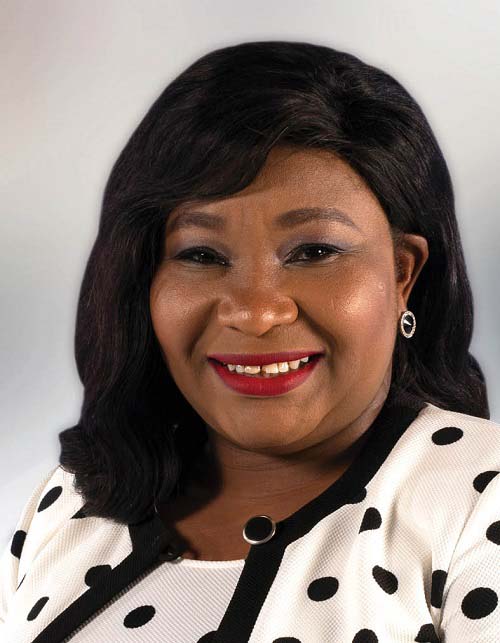
Yemi Adenuga
“Navan is very diverse,” Yemi says, proudly. “We have a wide range of nationalities living in Meath with about 37 languages spoken as a mother tongue. As a result, Meath has an enviable language skill set to support any global business operating from Navan. Schools in my constituency are also very diverse, with opportunities for students to be educated about other cultures.”
Adenuga stresses that people within the area still have a lot to learn.
“While much has been done to raise awareness, a lot more still needs to be done to enable inclusion for ethnic minorities and indigenes,” Yemi nods. “As an elected public representative from a migrant background, I use my position to initiate and promote campaigns and activities that encourage Navan as a town and Meath as a county to enjoy our diverse communities. I speak with groups, schools, and even religious bodies on a regular basis on issues of equity, inclusion, and racism.”
Cllr Adenuga initially put forward a motion for Meath to tackle racial discrimination, leading to the #MeathAgainstRacism campaign in 2019.
“I’m chairperson of the board of management of Ard Rí National School in Navan – the most diverse and proactive primary school in Navan and probably Meath. Our annual Culture Day has helped create more awareness for the pupils and parents.”
Advertisement
Yemi has worked with principal Darragh Roe over the last four years as chairperson, creating a model of what a diverse school should look and act like. Adenuga also works with Navan’s Colaiste na Mí secondary school to celebrate diversity.
“We are incredibly proud of that. The children who go to Ard Rí National school are like global citizens who embrace the beauty of the many cultures in the school. I initiated a project called Culture Pals where we enable difficult conversations to take place to help people learn how to make friends from diverse backgrounds.”
Has the councillor ever experienced backlash from right-wing groups?
“I’ve been trolled more times than I can count on social media with fake accounts, I’ve been threatened and have received racist comments and abuse,” Adenuga responds, matter-of-factly. “They don’t phase me. It comes with the job. The task ahead is to ensure Ireland understands, embraces, and enjoys its multiculturalism. The alt-right have no basis for their ill-informed belief that Irish white identity is under attack. On the contrary, Ireland is blessed to have a diverse country. We must learn how to make the best of it.”
Cllr Adenuga has big plans for the future of Navan and the space beyond Meath.
“I want to make ‘CULTURE PALS’ a national initiative. Hopefully, I can continue to deliver Diversity, Equity & Inclusion training to organisations across Ireland, to ensure that the voices they represent are always included in all conversations about them. County councils need to prioritise the implementation of their integration strategies as much as they take pride in writing one, and to ensure that diverse ethnic minorities groups are involved in baseline research that informs those strategies.”
Advertisement
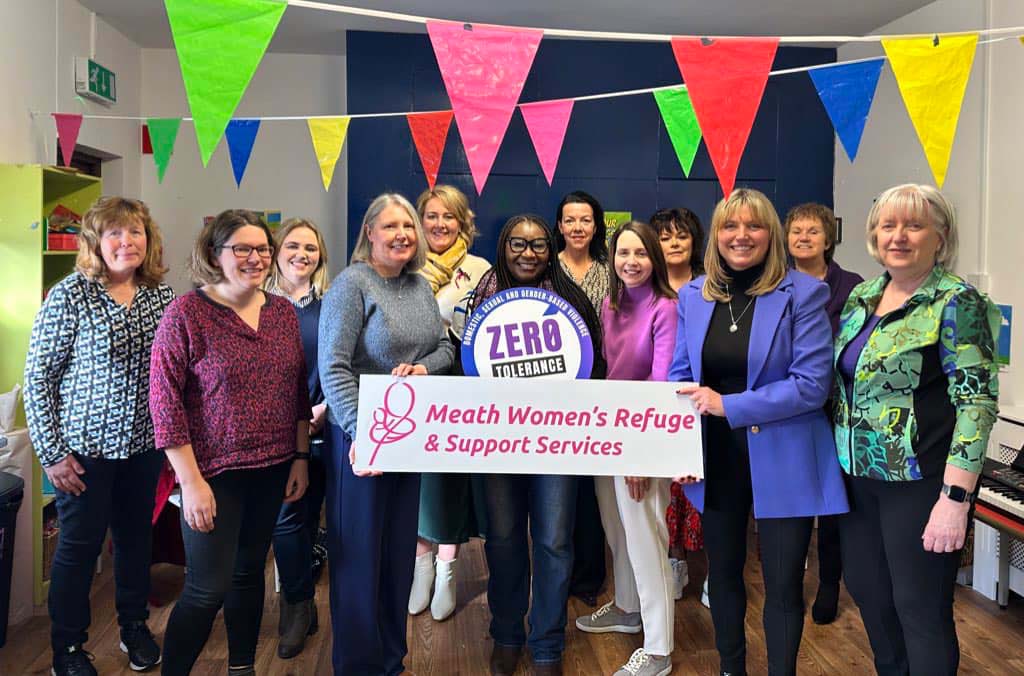
Yemi Adenuga at Meath Women's Refuge and Support Services
Islammiyah Saudique-Kadejo
Green Party, Galway
Nigerian-Irish social justice advocate, social entrepreneur, motivational speaker, and broadcaster Islammiyah Saudique-Kadejo is gearing up to run in the local elections next year for Tuam.
Back in 2021, the Galway resident founded GOCOM Radio, the premier community radio which focuses on the minority ethnicity in Galway and Ireland. She also founded Amdalah Africa Foundation (AMDAF), a charity dedicated to promoting justice, recognition and representation of African women, their descent and families, and ethnic minority groups. Meanwhile, Islammiyah is also the Convener of Africa Women Roundtable and Intercultural EPIC Award in Ireland.
“I’m running in the May 2024 elections for Tuam,” Islammiyah smiles, excitedly. “As a ‘field politician’, which I call myself for now, I’ve focused on issues within the local community and people’s interests for many years. I apply for funding to develop projects that take care of the needs of Galway’s communities, and aim to give young people a voice, and empower women to take up space. My focus has always been about improving lives around me, which is what politicians are supposed to do at the local level. I’m coming into politics because the Green Party gave me an opportunity to continue doing what I’m already doing for the community, so I can influence law and public policies. For now, I’m doing all that councillors do without the title.”
Advertisement
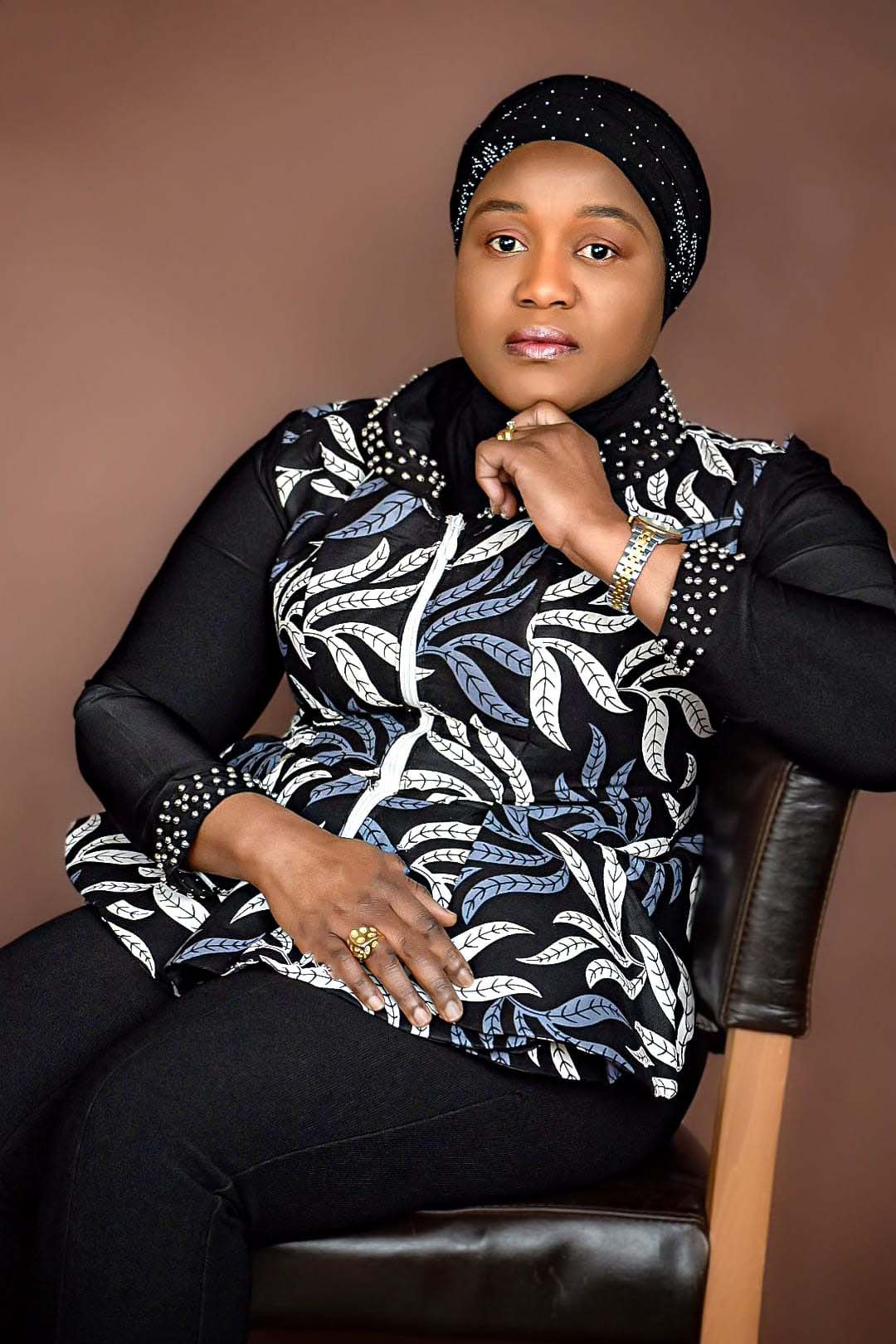
Islammiyah Saudique-Kadejo
What made her gravitate towards the Greens, or was it the other way around?
“I appreciate that the Green Party saw what I was doing and noted that I can do it on a bigger stage and platform,” says Saudique-Kadejo. “I’m a people person, and I want a seat at the table. The vision, mission and policies of the Green Party align with mine. I’m all about equality, diversity, inclusion, human rights, fairness, and justice to all. I’m also very interested in climate. If my children are going to ask me what I did in 10 or 20 years to help, I want to say that I tried my best. I won’t sit down and complain about the Government or neighbours without solutions. I want to be part of the answers, not the problem. The Greens are always interested in the future as well as the current energy, cost of living and housing crises. When we achieve all the things we’re clamouring for now, we need to have a healthy planet. I’m also passionate about reproductive healthcare for women and children’s health. We need to see people as human beings rather than labels and nurture the environment.”
In Islammiyah’s view, is her local area’s diversity represented in politics?
“My constituency is diverse, but there is no community in Ireland that isn’t. Minorities are everywhere,” she responds. “People from African descent, Ukainians, Indian and Polish communities and more are welcome in every county. I know a lot of non-Irish people residing in Tuam. A family friend of mine has been here for over 20 years. Tuam is growing in terms of equality, but we can do more for inclusion. It’s about people having a say about what is impacting their lives, their economy, their health, their children, their workplace. People like migrants, Travellers, disabled people should have a voice and feel included. Walking down the street, you see Black children and hear people speaking different languages. We need representation.”
Saudique-Kadejo intends to use her background as a media executive to get elected and ensure Galway’s diverse representatives can influence law and policies.
“When I started GOCOM radio in 2021, which is a multilingual online community, I wasn’t asking for votes. I was just doing the right thing,” the social justice advocate smiles. “If I’m elected in 2024, I would love to create a community hall in Tuam that welcomes everyone, whether you are Black, part of the Traveller community, Ukrainian - any ethnic group at all. It’s an open place for networking, learning about different cultural heritages, and coming together as people to make friends.”
Advertisement
Is there anything else high up on her agenda as a potential councillor?
“I’d love to grow GOCOM radio to an FM station,” Islammiyah nods. “I want it to be an employer rather than 25 volunteers from 10 nationalities. We can do better! My main goal is to get elected so I can bring my community together.
“We have our differences as Irish residents, but that should be our strength. That’s what I live and breathe for.”
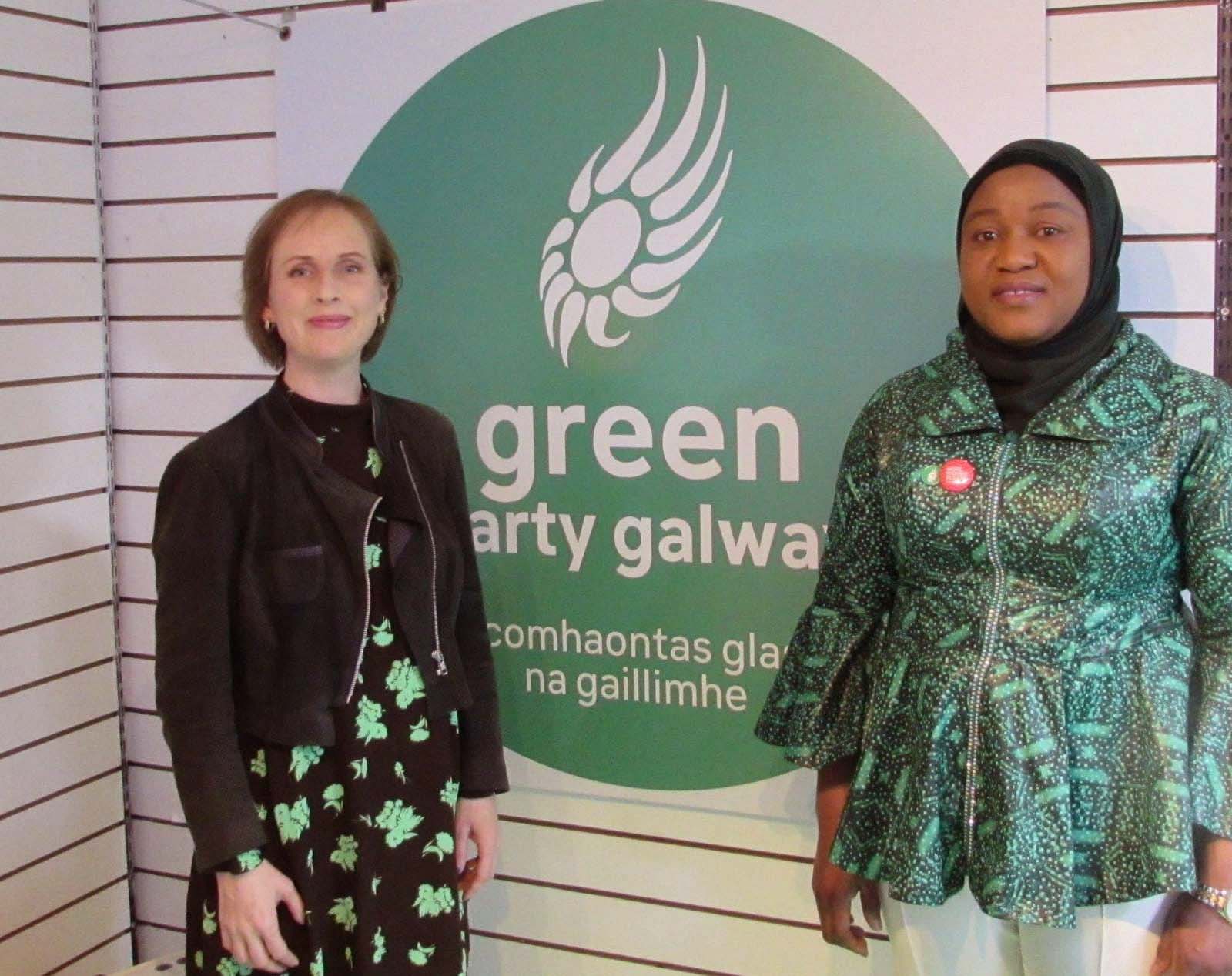
Islammiyah Saudique-Kadejo with Pauline O'Reilly of the Green Party










